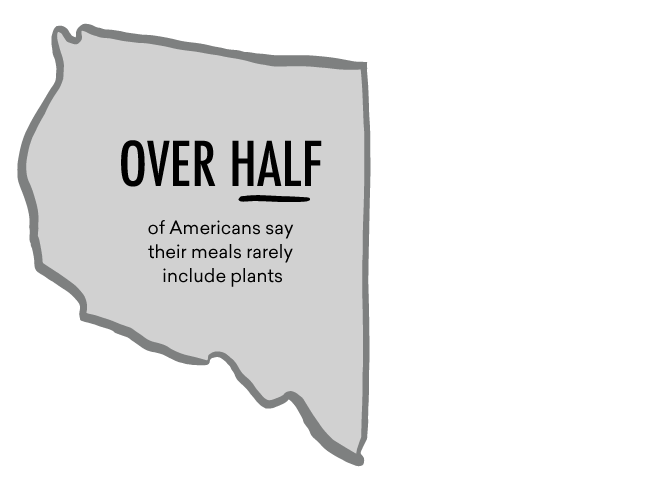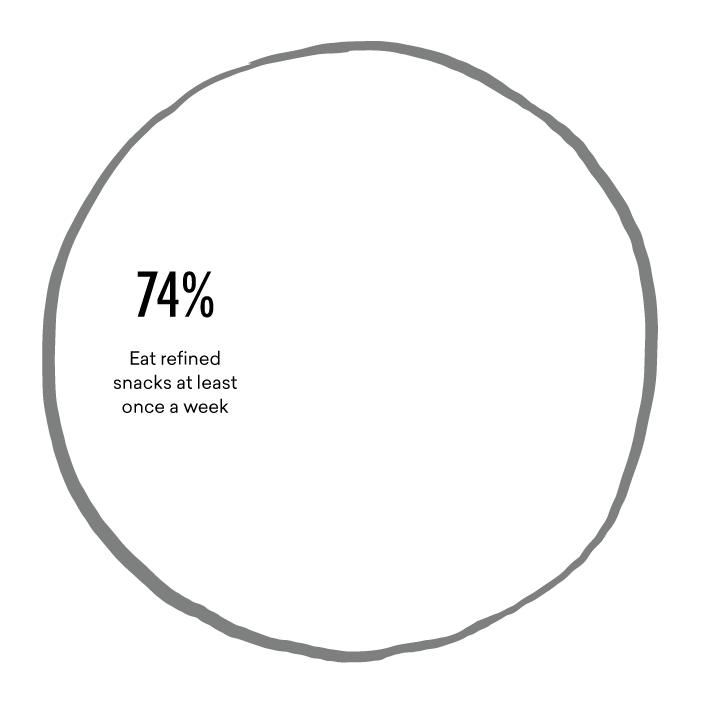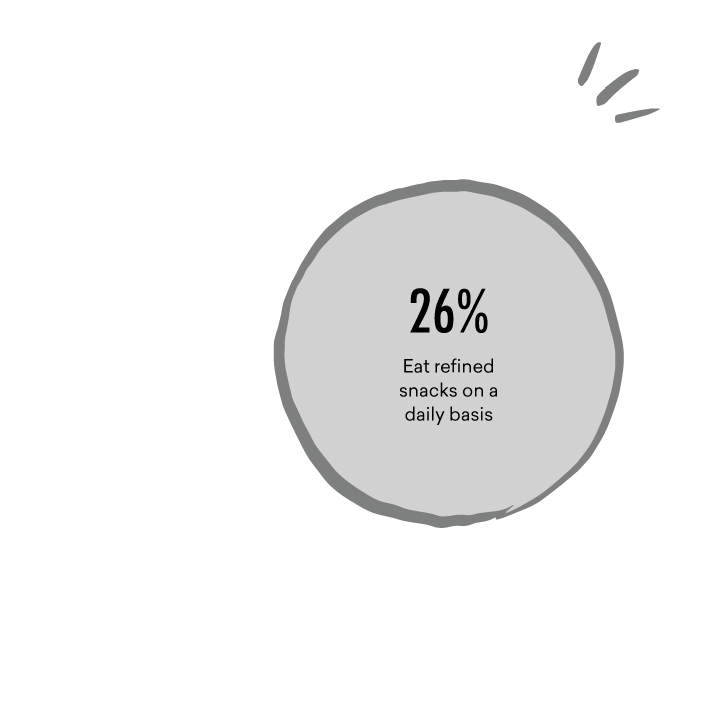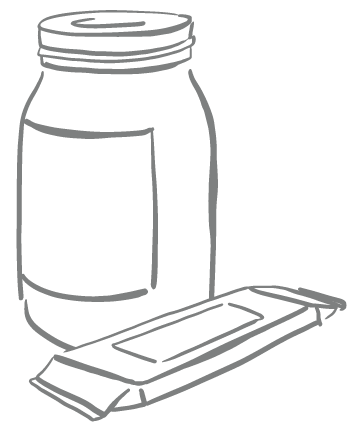We all know we should be eating well, but somehow don't. Here's why.



SECTION 01
Mom said, “Eat Your Veggies.” And honestly, we all know we should. 98% of Americans know that eating whole fruits + vegetables are beneficial.

Keep Them Healthy

Offer Vitamins and Nutrients

Provide Energy for the Day

Reduce Risk of Disease

Boost Mood


According to the Harvard School of Public Health, “A diet rich in vegetables and fruits can lower blood pressure, reduce the risk of heart disease and stroke, prevent some types of cancer, lower risk of eye and digestive problems, and have a positive effect upon blood sugar, which can help keep appetite in check.” 1

SECTION 02
72% of Americans confess they do not eat fruits + vegetables every day and nearly half of Americans define their diet as “unhealthy.”
(Or Not Eating)




Refined foods are often highly processed and full of sugars, sodium, artificial colors, flavors, and preservatives to promote shelf stability. Cheap fillers are often added to bulk up the weight of food to help lower prices and increase margins for food companies. Many of these ingredient names are in disguise and unfamiliar. 2 Be on the lookout for:
often listed as sodium benzoate, potassium sorbate, tocopherols
often listed as soy lecithin, monoglycerides
often listed as xanthan gum, pectin, carrageenan, guar gum
often listed as artificial FD&C Yellow No. 6 or natural beta-carotene to add yellow hues

38% of Americans admit to skipping an actual meal at least once a week and replacing it with a bar or supplement.


81% of Americans say eating an unhealthy meal has an impact on their physical and mental well-being.








SECTION 03
Knowing and doing are two different things. Here’s why we’re not eating fruits + vegetables.


49% look for meals that do not require a lot of time to prepare.


55% look for meals that are easy to prepare.


Less than half of Americans factor fruits + veggies into their food planning.








1 in 5 Americans
search for the word 'healthy' or 'lite' in the product name or packaging.
Nearly 2 in 5 Americans
specifically seek out foods that are labeled as being low in fat or calories.
The Food and Drug Administration (FDA) sets guidelines to regulate what food manufacturers can claim as “healthy” on their labels. Guidelines include:
“Not low in total fat, but have a fat profile makeup of predominantly mono and polyunsaturated fats”3
“Contain at least ten percent of the Daily Value (DV) per reference amount customarily consumed (RACC) of potassium or vitamin D.”4


“Healthy” food labels can be deceiving and often only convey a small piece of the full nutritional picture. Unfortunately, we can’t rely on marketing claims alone to understand what we’re eating. We’ve got to start reading full nutritional facts and ingredient lists.
Need help understanding labels? Check out the American Heart Association’s guide for where to begin.

Americans don’t think organic food is healthier than its non-organic counterparts.

Americans don’t believe that organic food is truly free of chemicals and pesticides.



would rather buy fresh fruits + vegetables than frozen produce.
The majority of Americans believe fresh food is better for them than frozen.
Frozen is actually better than the “fresh” produce you find at the grocery store

Most grocery store produce is harvested when it’s still green before reaching peak-nutrition, and then ripens in transit. They often use chemicals (like 1-methylcyclopropene) and preservation methods to help keep it “fresh.” 8
Frozen produce, on the other hand, is a healthier, more nourishing alternative. When fruits + vegetables are allowed to ripen naturally on the vine, they can reach their nutritional peak. If frozen within 24 hours of harvest, those nutrients are locked-in and there’s no need to use preservatives or chemicals.
References:
1 The Nutrition Source: Vegetables and Fruits. Retrieved from https://www.hsph.harvard.edu/nutritionsource/what-should-you-eat/vegetables-and-fruits.
2 The Nutrition Source: Processed Foods and Health. Retrieved from https://www.hsph.harvard.edu/nutritionsource/processed-foods.
3 Guidance For Industry: Use of the Term “Healthy” in the Labeling of Human Food Products. (September, 2016). Retrieved from https://www.fda.gov/regulatory-information/search-fda-guidance-documents/guidance-industry-use-term-healthy-labeling-human-food-products.
4 Source: Environmental Quality and Food Safety Research Unit
5-7 University of Chester: Environmental Quality and Food Safety Research Unit. (2013). Antioxidants in Fresh and Frozen Fruit and Vegetables: Impact Study of Varying Storage Conditions. Retrieved from: http://www.repoa.or.tz /documents/Publications/Reports/63.pdf
8 Keeping Apples Crunchy and Flavorful After Storage (2007). Retrieved from: https://agresearchmag.ars.usda.gov/2007/oct/apples
Methodology:
The Veg Report by Daily Harvest surveyed 1,004 Americans, aged 18+ was conducted online during the period of November 7th-10th, 2019 and the study has a margin of error of +/- 3.1%.
Results of any sample are subject to sampling variation. The magnitude of the variation is measurable and is affected by the number of interviews and the level of the percentages expressing the results.
In this particular study, the chances are 95 in 100 that a survey result does not vary, plus or minus, by more than 3.1 percent, from the result that would be obtained if interviews had been conducted with all personas in the universe represented by the sample. The margin of error for any subgroups will be slightly higher.